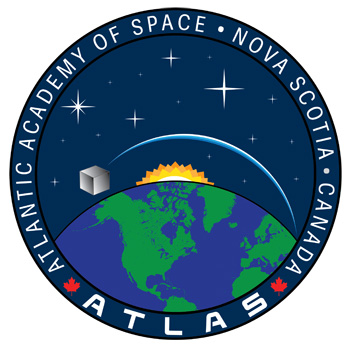A two-week program launching on Dalhousie’s Sexton Campus this summer will provide high-school students from across Atlantic Canada with hands-on experience in the space-science field.
Organizers hope the summer space academy will set students up for future careers in the industry by offering them introductory training and mentorship in a sector relatively undeveloped in the region.
“Living in Atlantic Canada, the reality is the space industry is not as strong as it is in Quebec or Ontario,” says Arad Gharagozli, CEO at GALAXIA Mission Systems and founder and president of Dalhousie Space Systems Lab.
ATLAS (ATLantic Academy of Space) is working on changing that. The initiative is the result of a collaborative effort by GALAXIA Mission Systems, SuperNOVA (an organization at Dal that promotes STEM-focused education for youth), and Dalhousie Space Systems.
Students will learn about artificial intelligence, engineering and space exploration, while designing a satellite, known as a CubeSat. CubeSats are small satellites that are intended for space research and education.
“The ATLAS program will be the first of its kind in Canada, showcasing real-world applications not often found so explicitly in STEM education programs and providing a crucial opportunity to tie theory to practice through the development of engineering skills.” says Alexandra Fenton, executive director of SuperNOVA.
The Province of Nova Scotia and Texas Instruments are also providing support for the program. Additionally, mentors from the Canadian Space Agency will work with students.
Open to all
The summer program is free for students, which Gharagozli says will allow them to focus on their passion for space without the worry of finances.
“One of the things we wanted to put as our top priority was to ensure that any kid with the true passion for space has this opportunity,” says Gharagozli.
That effort extends to gender parity within the academy.
“In order to do that, we wanted to make sure that, first of all, we address some of the issues that we are currently facing in the space industry, and that’s similar to most of the STEM field, the unbalance that exists between male and female experts in the field. It’s a heavily male-dominated industry,” says Gharagozli.
The academy hopes to be able to reach students that may be interested in the space industry but who have no opportunities to learn about the field or discover career options.
“We want to make sure that primarily rural areas have access to the program, specifically indigenous groups,” says Gharagozli. “We want to make sure that it’s open to everyone across the Atlantic provinces.”
The target for the academy is 50 per cent Black and Indigenous enrolment.
The academy has already seen an overwhelming amount of support and applicants, says Gharagozli. Applications for the program’s 30 spots are open until June 4, with the academy beginning on July 19.
Following the summer program, ATLAS plans to host short-course workshops from September to January. ATLAS plans to host the summer academy and workshops for the next three years at least.
Learn more about ATLAS.

